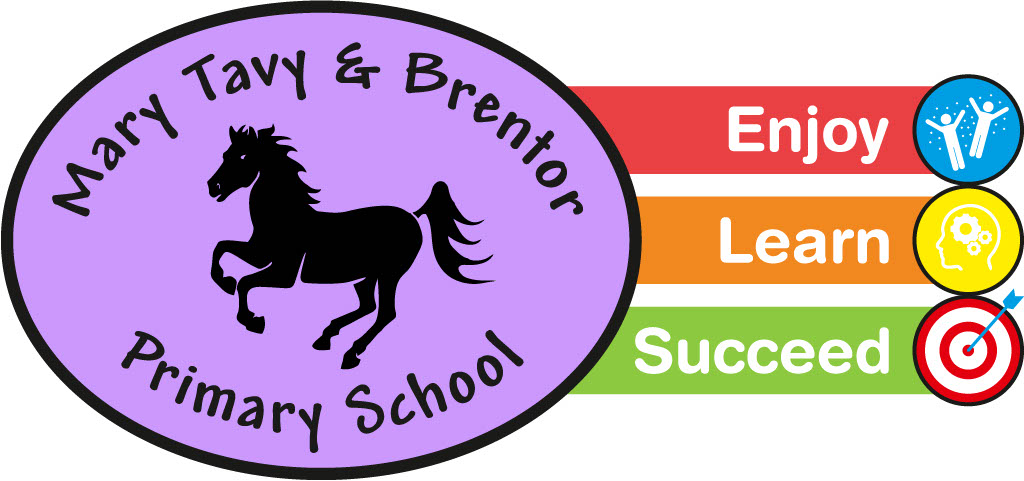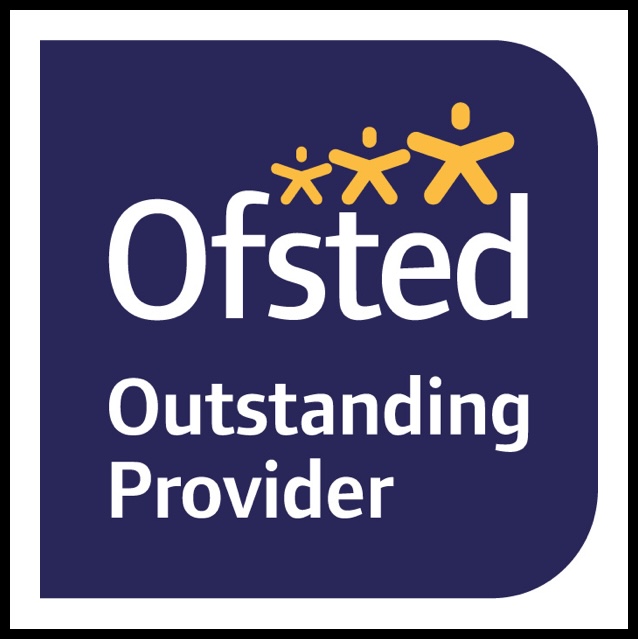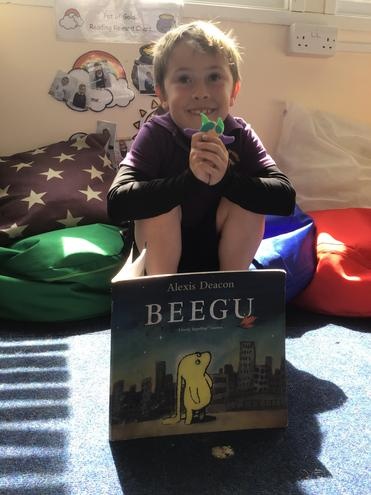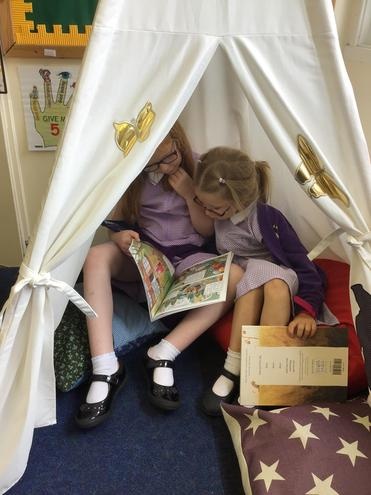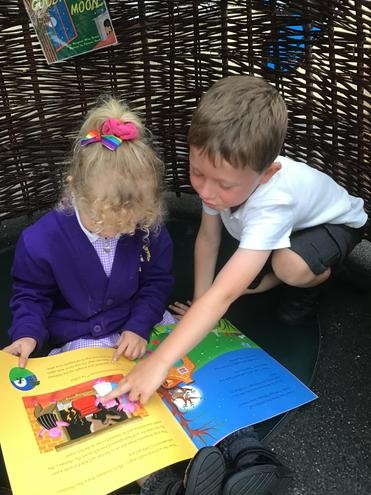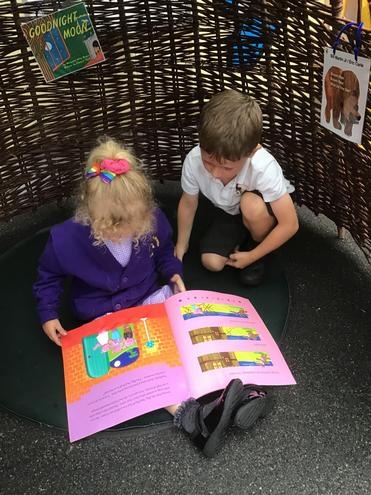Reading
Autumn Term Overview of progress
Reading Intent Statement
Reading Curriculum Overview linked to INTENT
Reading Skills Progression mapped across the school
Intent Statement : Reading and phonics
We want children to ...
- develop pleasure in reading and to be motivated
- read for enjoyment, with confidence and with understanding
- read from a wide range of quality texts and reading materials
- have a good understanding of, and ability to apply knowledge of phonics and word patterns
How is reading taught at Mary Tavy and Brentor?
In every class throughout the school all texts have been specially selected with the purpose to support children in their reading development.
These may be ...
- memorable texts that feature repetition and encourage prediction
- texts within which rhythm and rhyme are important
- texts that allow children to practise and apply their phonic knowledge
- books with strong story shapes and structures
- books with supportive illustrations
- books that draw attention to written language and to the ways books work
- stories with different cultural settings
- books which provide information
Children who are mastering reading competencies and require more challenging texts with a wider range of titles, genres and authors, experience ...
- texts with sophisticated plots and flashbacks
- books that deal with important and current themes
- books in which language is used in lively, inventive ways
- books by skillful and experienced children’s writers and illustrators
- traditional and contemporary ‘classics’ of children’s literature, including narrative poetry
- stories with different cultural setting
- texts that promote discussion and reflection
- However, the most important feature of our collection is that the texts, engage and positively reflect the children’s interests and backgrounds.
All classrooms have attractive book areas where from a very early age children are taught to scan and choose their favourite story or text of interest. In addition to this children are read stories each day at story time and are expected to read with parents each night and to record what they have read in the school’s ‘Reading Together’ home reading journal. It also provides opportunities for parents to write comments about how they feel their child’s reading is developing (reading together tips/guidance ).
Reading assessment
The children are assessed for accuracy, fluency and understanding of the texts from the range of texts they have studied within that book level. If successful they then move up to the next book level. When they have progressed through the reading scheme, and assessment is successful, the children come off the programme and join the ‘genre’ group where they follow the school’s Literacy scheme of work. When a child enters a new book level parents are immediately informed.
If children have difficulties in remembering particular phonemes or require extension work to develop their fluency or comprehension skills then they will receive additional intervention and support
Their positive attitude towards reading is developed by ...
- participating in discussion about both books that are read to them and those they can read for themselves, taking turns and listening to what others say
- listening to and discussing a wide range of fiction, poetry, plays, non-fiction and reference books as well as reading books that are structured in a number of different ways and for a range of purposes
- increasing familiarity with a range of books, including traditional and cultural stories, myths and legends, classic and modern fiction
- identifying themes and conventions, and making recommendations
- preparing poems and play scripts to read aloud and to perform, showing increased understanding through intonation, tone, volume and action so that the meaning is clear to the audience
- recognising and learning by heart different forms of poetry for example, free verse, limericks, haikus and narrative poetry
When reading independently children understand what they read, by ...
- exploring and explaining the meaning of words in context
- asking questions to improve their understanding of the text
- drawing inferences such as inferring characters’ feelings, thoughts and motives from their actions, and justifying with evidence
- predicting what might happen from details stated and implied
- identifying and summarising main ideas
- identifying how language, structure, and presentation contribute to meaning
- retrieve and record information from non-fiction texts
- In Years 5 and 6 children develop skills in making comparisons within and across a wider range of books and begin to challenge others’ ideas and views. Children evaluate how authors use figurative language and distinguish between statements of fact and opinion. They also explain and discuss their understanding of what they read, including presentations and debates, and using notes where necessary whilst providing reasoned justifications for their views
Class 1 FS/Yr1
Children begin their love of books on entry.
Attractive and inviting books with colourful illustrations and photographs are continually shared among adults and children whether indoors or outdoors and pertinent to the continuous provision activity they are involved in. When sharing the books adults model how to be a reader by using expression, intonation and gestures: all of which add to the engagement and ‘fun’ of reading. Adults will also use books to show children how they can be applied in everyday circumstances such as; reading a recipe when cooking a cake, reading instructions when learning how to play a game.
Children are also taught how to handle books and become familiar with the way books work - for example, role-playing an adult reading to the class by turning the pages, telling the story using pictures and saying phrases, Using story props, children are encouraged to use the stories they hear in their play as well as discuss the characters actions, predict the outcomes, suggest alternative endings and compare events in the stories with their own experiences. Children enjoy listening to a range of books daily and are taught to retell stories using correct sequence of events and applying its language pattern. They develop understanding that print carries meaning and in English, is read from left to right and top to bottom. Children also show an understanding of the elements of stories such as, the main character, variety of openings and how information can be found in non-fiction texts to answer questions about where, how, why and how.
In discrete phonic sessions children listen to and join in with rhymes, alliteration, singing and clapping games, all very important activities which teach children to discriminate between and recognise sounds. Then, when appropriate the children are taught to recognise, read, pronounce and write sounds.
In Class 1 children apply reading skills. This includes learning a new sound, hearing and say and sounds in the order they appear in a word and to use this knowledge to write simple ‘regular’ words and make phonetically plausible attempts at more difficult words. Children are also taught comprehension skills where they search for answers within the text as well as develop skills in providing opinions based on the events read.
Years One and Two
Based on one text throughout the week, all children participate in the following reading activities ...
- learn a new sound or an alternative spelling to a sound for example; ay, ai, a-e
- practice reading ‘phonic’ words, including root and syllabic words; boot, check, shade, boy; yell’ow, em’boid’er; point-pointed-pointing
- learn a new word with uncommon sound spellings: the, said, my, are, call, could (Common Exception Words)
- checking the meaning of words
- read the story:
-
First Read story familiarity and sounding words Second Read to develop comprehension skills Third Read to develop fluency, expression and reading with punctuation
- story discussion/debates
- asking and answering questions
- reading words at speed
Once children are ready they are then taught more advanced reading skills through daily English lessons and regular guided reading.
Guided reading is when a group of similar ability children read the same text with a ‘given’ focus such as, recognising how texts are structured, making inferences on the evidence read in a text, predicting what might happen on the basis of what has been read so far and knowing how metaphors/adjectives create images for the reader. The children also begin to record the books they have read in class in their ‘Reading Journals’ which they will continue to use up till the time they leave school in Year 6.
In addition, the children will further develop and apply phonic knowledge; accurately read words with two or more syllables and words containing common prefixes/suffixes; develop fluency and speed reading and read more irregular spelt words such as, thorough, reign, separate, imagine. They will understand how paragraphs are constructed and how specific language and punctuation is used to build up tension and effect. There will also be more opportunities to discuss and express their views about what they have read, re-tell a range of stories and develop skills of intonation when reciting a repertoire of poems that have been learnt by heart.
Key Stage Two (Year Three to Six)
In Key Stage Two, children build upon the reading skills learnt through a daily literacy lesson where guided reading is taught three times a week along with an extended weekly grammar lesson.
Children continue to borrow books from the school library or from the Reading corner.
For children who are at the early stages of reading or who are finding reading difficult we have interventions such as 1:1 Reading and Reading Volunteers to support their progress.
Children continue to apply their phonic knowledge to root words, prefixes and suffixes, both when reading aloud and to understand the meaning of new words. Children develop skills in using dictionaries and thesaurus’s, and identifying words and phrases that capture the reader’s interest and imagination.
How do we assess children’s reading?
Reading is assessed each term for all children and progress is recorded, tracked and monitored.
Once children can proficiently comprehend a variety of texts (mid Year 2) they start to partake in termly reading comprehension tests which the teachers analyse and identify individual targets which address the gaps in their understanding and/or application.
There are three statutory reading assessments which have to be taken and these outcomes are reported to parents:
Y1 – A Phonics Screening
Children have to read 40 words:
20 of which are nonsense words in all which assesses children’s phonic knowledge. This test is usually taken in late June. A parents meeting is held in April where the ‘check’ requirements are explained in full.
Y2 – A Reading Test
Children take a reading comprehension test in May which covers fiction and non-fiction texts.
A parents meeting is always held to explain the test requirements and how it is administered, and to address any concerns.
Y6 – A Reading Test
Along with a Spelling, Grammar and Punctuation test, and Maths tests, children also take a Reading Comprehension test.
This test covers fiction, non-fiction and poetry, and is taken in May. A parents meeting is held to explain the test requirements and how it is administered, and to address any concerns.
How do we promote reading?
We continually strive to instill a love of reading in all children by having regular well established, enjoyable and exciting reading based activities and events which promote and strengthen the reading abilities in our school, for example;
- Every year we celebrate books with ‘Book Month’ where in the month of March authors come to meet and work with children, children compose their own story and design their book cover, threatre companies come in to dramatise well known stories, professional poets and oral story tellers perform.
- We have an annual Book Character Day to celebrate World Book Day (March), as well as celebrate Harry Potter Night (February) and National Poetry Day (October)
- Every Tuesday morning we have a Book Swap in our playground and every half term we have a Readathon after school.
- We have termly book fairs where the most current and popular books are for sale at discounted prices.
- We have a wonderfully well stocked library which is run by Mrs Hunter (LSA)who runs after school and lunchtime book clubs.
- Each year we produce a published anthology of the children’s own written stories for others throughout the school to read in our ‘Little Book of Stories’.
- Throughout the year we have an array of experiences, competitions and challenges, such as, the Pot of Gold a reading ‘Football’ challenge, various spelling and book review challenges, book poster competitions and poetry recital performances.
-
This is just a taster as loads more happens in school. Below are some materials to explain some of what we do at school and resources to help parents support children’s reading at home.
